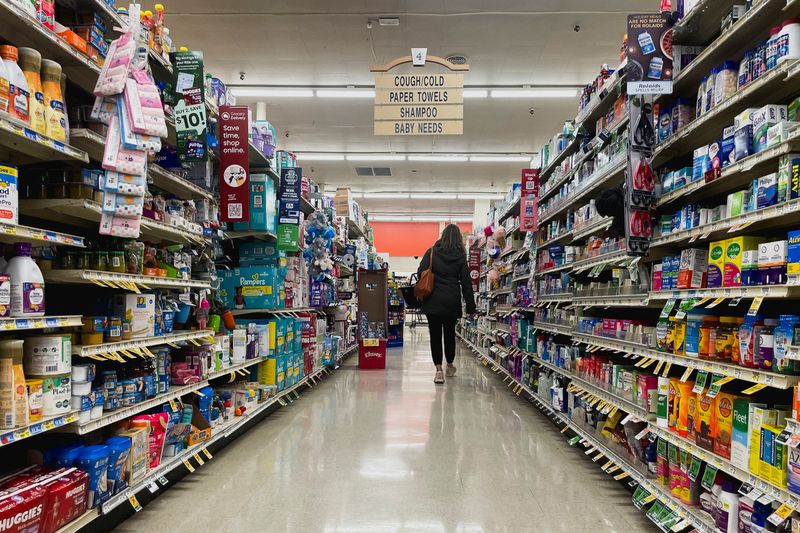(Reuters) -A U.S. judge blocked the pending $25-billion merger of U.S. grocery chains Kroger (NYSE:KR) and Albertsons (NYSE:ACI) on Tuesday, in a win for the Federal Trade Commission that Kroger has said would likely scuttle the deal.
The FTC argued at a three-week trial in Portland, Oregon, that the merger would eliminate head-to-head competition between the top two traditional grocery chains, leading to higher prices for shoppers and reduced bargaining leverage for unionized workers.
The ruling, which could be appealed, is a big victory for FTC Chair Lina Khan and President Joe Biden’s administration in their bid to counter inflation at the checkout. Americans’ discontent over a lingering rise in grocery prices since the pandemic was a key theme in the run-up to President-elect Donald Trump’s win in November.
U.S. District Judge Adrienne Nelson agreed the merger was likely to remove direct competition between the two grocers, making it unlawful.
Separately on Tuesday, a Washington state court judge in Seattle also ruled to block the merger in a case brought by Attorney General Bob Ferguson, who had estimated half of all supermarkets there are owned by one of the two chains.
Albertsons shares closed down 2.3%. Kroger shares closed up 5.1%.
The White House said after the ruling they were “proud to stand up against big corporate mergers that increase prices, undermine workers, and hurt small businesses.”
FTC spokesperson Douglas Farrar said the win “makes it clear that strong, reality-based antitrust enforcement delivers real results for consumers, workers, and small businesses.”
Spokespeople for Kroger and Albertsons said the companies are disappointed in the rulings and considering their options.
“We believe we clearly outlined during the proceedings how the proposed merger would expand competition, lower prices, increase associate wages, protect union jobs, and enhance customers’ shopping experience,” the Albertsons spokesperson said.
GROCERY COSTS
The deal became a symbol of surging grocery costs. U.S. food prices have risen by 25% over the last four years, and while food inflation is showing signs of cooling in 2024, grocery bills remain a growing concern for shoppers.
The FTC sued along with attorneys general from eight states and the District of Columbia. Colorado, like Washington, sued on its own to block the deal.
Kroger defended the deal, saying it would bring prices down at Albertsons stores, where it said prices are 10-12% higher than its own. The merged company would fund price cuts through cost savings it expects from a larger operation, and a larger customer base to drive revenue for Kroger’s data consulting business.
Nelson, who Biden appointed to the federal bench in 2023, rejected those arguments, saying the efficiencies were not verifiable or specific to the deal. Kroger’s promises to invest in lower prices and better benefits for employees would not be enforceable, she wrote.
“Despite defendants’ best intentions to follow through on their promises at this moment, the business realities on the ground after the merger may change what defendants are able to invest or what is in their best interest to invest,” she said.
The FTC had also sought to block the deal on the theory that it would decrease competition for unionized grocery labor and cut bargaining power for workers.
The agency did not present enough evidence to prove the theory, the judge said, but added that the FTC had presented a “compelling and logical case.”
Had the deal proceeded, Kroger would own approximately 5,000 stores across the U.S. The companies argued at trial that they needed to merge to compete with global companies such as Walmart (NYSE:WMT) and Amazon.com (NASDAQ:AMZN).
Kroger and Albertsons had said that selling 579 of the stores, particularly in western U.S. states where Kroger and Albertsons are located near each other, would preserve competition.
Nelson disagreed, raising doubts the proposed buyer, C&S Wholesale Grocers, could become a successful competitor.

Grocery workers’ unions criticized the merger, saying it would likely lead to job losses.
Six United Food and Commercial Workers International Union locals representing more than 100,000 grocery store employees at both companies called on the two to abandon the deal and “turn their focus back where it belongs: operating grocery stores.”





